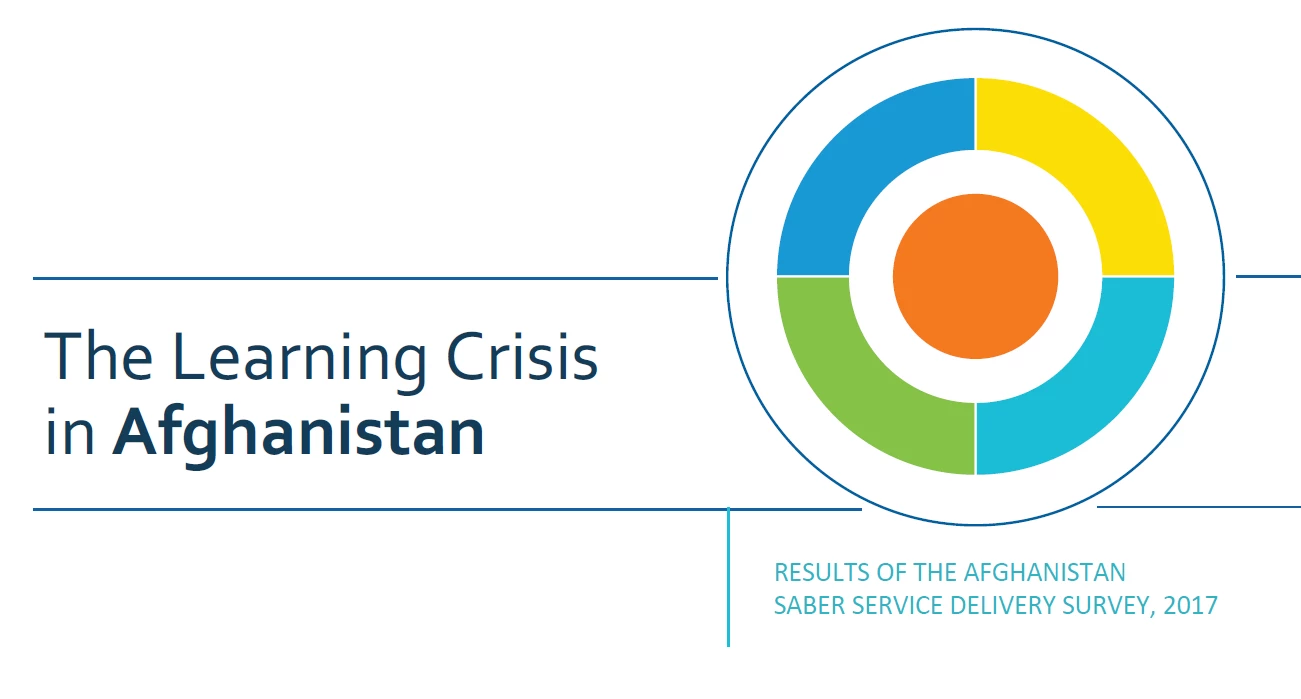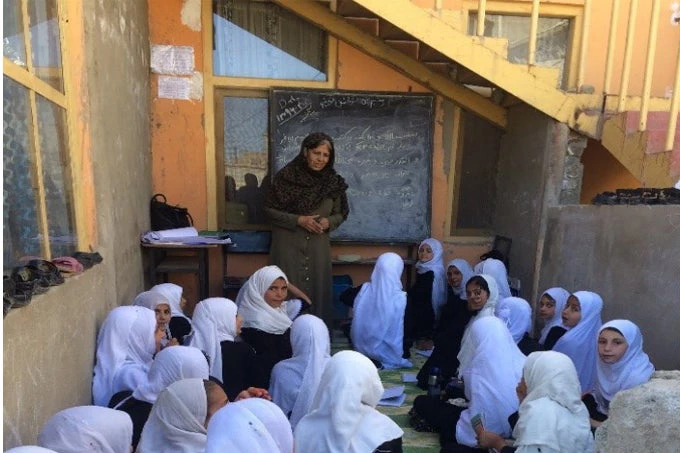Although access to schooling has improved significantly in the last decade, fourth grade Afghan students are still not learning. After 4 years in primary school, only two-thirds of Afghan students have fully mastered the language curriculum for the first grade and less than half of them have mastered the mathematics curriculum for the first grade.
These alarming statistics were revealed as part of a Mathematics and Language assessment collected by the Afghanistan SABER Service Delivery (SD) survey. The SABER SD tool aims to help uncover bottlenecks that constrain student learning in low and middle-income countries and to better understand the quality of education service delivery and gaps in policy implementation.
Why is Afghanistan’s Education System Not Aligned with Learning?
According to the survey, Afghanistan’s education system is lacking in all four key school-level determinants of learning: skilled and motivated teachers, effective school management, school inputs that affect teaching and learning, and prepared and supported students.
Teachers
Fifteen percent of primary school teachers across all grades were absent from class. While in the classroom, teachers spent 80 percent of their time on learning activities, which is close to the 85 percent target. While teachers have low absence rates and high time on task, the short-scheduled teaching time—a 3 hour and 25-minute school day—means Afghan students receive less effective teaching than the average Sub-Saharan African country.
Only four in 10 teachers showed evidence of mastering fourth grade language curriculum and fewer than 40 percent of teachers showed evidence of mastering fourth grade mathematics curriculum.
To measure pedagogical knowledge, we asked teachers to read and extract information from a factual text on a topic and to state what they would expect their students to learn. While teachers struggled to read and understand the text they struggled even further to formulate what they want children to learn. In addition, few teachers demonstrated an ability to assess students’ learning and give feedback.
Less than a third of teachers keep a record of students’ performance and even fewer were able to estimate student’s performance within a twenty-point margin. Overall, less than two in ten teachers deployed the teaching practices identified as promoting learning—structuring, planning, asking lower and higher order questions and giving feedback—in their lessons.
These results point to two systemic challenges: the system used to select and train teachers does not deliver high-quality candidates; and the system used to monitor and support teachers does not help them deliver high-quality teaching.

School Management
What do principals do? While most primary school principals receive training on administrative skills, almost none received training on helping teachers improve instruction. And even when they do have some autonomy, they do not have the skills to make good decisions. For example, Afghan principals report having a lot of decision-making power when appointing a teacher to participate in training, but less than half of the principals are equipped to provide any pedagogical support and coaching to teachers.
What do principals know? Although primary school principals work long hours and have low absence rates, almost none of them were able to predict their school’s performance in terms of teacher absence, teacher content knowledge, and student’s learning outcomes. Only 13 percent of Afghan principals follow good practices of teacher evaluation.
School Inputs
Public schools in Afghanistan lack basic necessary infrastructure and do not provide students with an adequate learning environment in the school or in the classroom. Almost half of schools do not have at least one functioning toilet. Even in schools with such facilities, there are around 169 students per every toilet. In addition, around 70 percent of public schools lack clean drinking water and working electricity.
Student Support
Afghan students do not have the necessary support to be fully prepared for learning. Even though almost all students are provided with breakfast and have missed less than five days of school per month, only half of the students can count on someone to help them out with homework. This is reflected in the fact that most parents are illiterate. In terms of support from school, almost none of the schools offer services for students with special needs or to cope with post-traumatic stress disorder (PTSD).
What explains these results?
The provision of education in many low-income countries, including Afghanistan, is characterized by a combination of centralized, but typically weak, state control and often low-capacity, locally governed institutions. A vicious cycle is created in which today’s teachers and principals have gone through an education system that did not adequately prepare them and they struggle to teach the next generation of students. Furthermore, improving student learning is not seen as their main responsibility.
To learn more about Afghanistan’s learning crisis, please refer to “The Learning Crisis in Afghanistan”.
Currently, The World Bank is supporting the Afghan government to tackle the learning crisis through the EQRA project. The project aims to increase equitable access to primary and secondary education, particularly for girls, in selected lagging provinces, and to improve teaching and learning conditions in Afghanistan.




Join the Conversation